Why privatization simply aggravates the crisis in Brazilian prisons
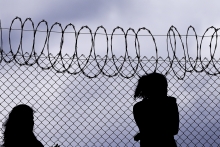
By Igor Ojeda
The massacre of 56 prisoners at the Anísio Jobim Penitentiary Complex (Compaj) in Manaus, in the state of Amazonas, surprised Brazilians most concerned about the conditions of detention and the possibility of further episodes like this in other parts of the country, which was precisely what happened. Another section of the population celebrated the event, based on the popular saying that “the only good criminal is a dead criminal".
The main cause of the massacre, which took place between 1st and 2nd January, was conflict between rival criminal gangs. It was one of the largest mass killings in the history of the penitentiary system in Brazil, second only to the Carandiru massacre in Sao Paulo in 1992, where 111 prisoners were killed by military police.
Events in Manaus quickly attracted public attention due to one specific factor: since 2014, Compaj has been under the administration of a private company, Umanizzare. The mass media and the authorities lost no time in blaming the company for what had happened, saying that its performance failed to meet the requirements of the service for which it was contracted.
But does the problem of outsourcing or other forms of privatization come down just to poor quality service?
Also read:
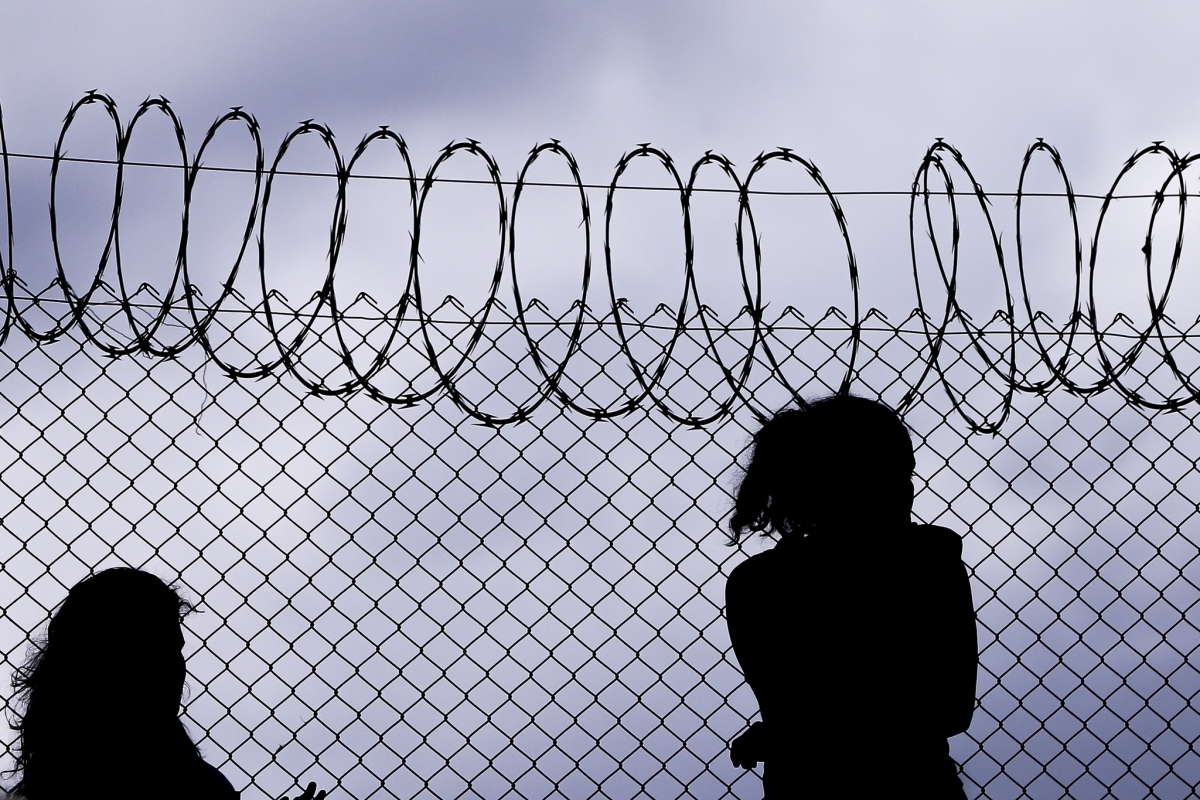
According to experts in the penitentiary system whom we consulted for this report, the key question is not a company’s performance or the poor conditions in a prison that has been outsourced as such, but rather the negative consequences of the policy of privatization of prisons.
"When a prison is privatised, the state transfers the management of the prison to a company, but is still indirectly involved in the procedures applied there", says Catarina Pedroso, a psychologist and expert from the National Mechanism for Preventing and Combating Torture (MNPCT), a body connected to the Ministry of Justice, but which operates independently.
In December 2015, i.e. one year before the massacre, Pedroso and other experts visited Compaj and three other prisons in Manaus. "What we found was 'self-government' of the prison procedures by the prisoners themselves, which of course endangers the lives of those who have no contact with most prisoners or those who are in conflict with others who have greater influence within the prison”, she explained.
For Bruno Shimizu, ombudsman for the State of São Paulo and a doctor in Criminology from the University of São Paulo (USP), asserted: "We can say with certainty that the process of privatization and commercialisation of prison management, whether through outsourcing, joint management or Public-Private Partnership, played a central role in the massacre that occurred."
He considers that private management of prisons “inevitably” brings about worsening conditions of detention and growth of the prison population in the medium term, since transfers of public funds to companies are calculated based on the number of prisoners detained in the prison in question, and at a higher cost per internee than in prisons managed by the State. "In this context, it is noted that in the privately managed prisons there is less concern for basic security arrangements, such as the separation of prisoners belonging to rival gangs and control of the conditions of imprisonment by the bodies in charge of enforcement of prison sentences."
Paulo Malvezzi, legal adviser to the Prison Ministry, an organization linked to the Catholic Church in Brazil, believes that one consequence of the privatization or outsourcing of prisons, besides being an obstacle hampering external inspection of the prison environment, is that it makes work in the prisons precarious, so that prison staff are replaced by employees on lower salaries and with less training. He considers that it also leads to the “questionable relationships developing between the private administrators and prison gangs."
However, Malvezzi also considers that although it could be said that the outsourcing of Compaj contributed to the killings in the jail, the same thing could have happened in a unit managed by the State. Therefore, what the massacre shows is that privatization of the penitentiary system does not bring benefits to society, does not improve the conditions of treatment of detainees and does not reduce costs. "In addition, it adds even more difficulties and problems to a system that is already problematic because of its very nature, which is cruel and inhuman, and this has a negative effect on both prisoners and prison workers," he says.
In 2014, the Prison Ministry published a report based on visits to eight privatized prisons in six different Brazilian states, managed by five different companies. The results are as follows:
- The costs/benefits of privatization have not been beneficial for the public administration;
- the allocation of resources to privatized units reduces the amount transferred to publicly-run prisons;
- the privatization of prisons is a result of the lack of alternative criminal policies which would be less harsh on people in conflict with the law;
- there is a high turnover of staff in the privatized prisons, with low wages and few or no qualifications for work in the prisoners' custody service;
- there is a lack of transparency in the process of privatization of prisons;
- the rigid discipline observed in all privatized units has led to restrictions on the rights of prisoners under the Law on Sentence Enforcement.
State monopoly on the use of force
The very privatization of the penitentiary system in itself raises a fundamental conceptual problem. Catarina Pedroso, from the MNPCT, reminds us that one of the fundamental principles of a democratic state governed by the rule of law is state monopoly on the use of force. She made the following critical comment: "To the extent that, in the privatized prisons, the staff exercise the power of discipline and control, this power is being transferred to third parties."
In December 2014, about 18,000 inmates, or 3% of Brazil’s prison population, were under the management of private companies, according to data from the National Penitentiary Information Survey (Infopen), published in April 2016.
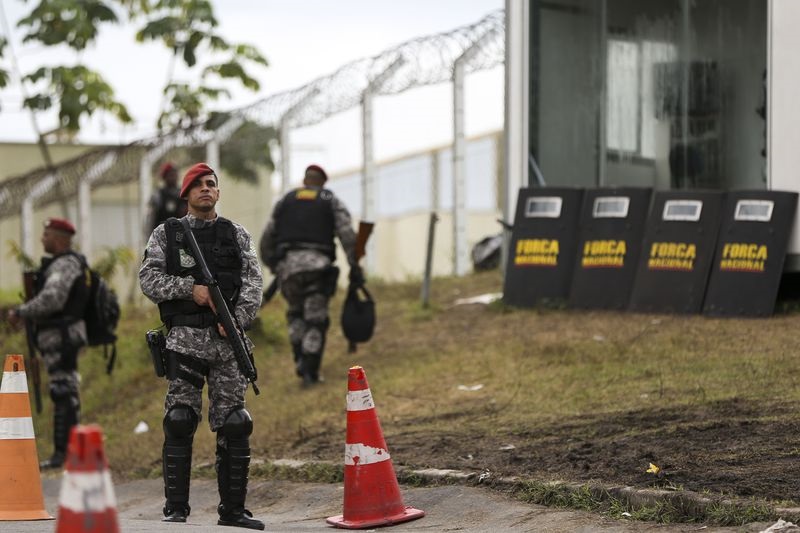
Article 83-A of the Law on Sentence Enforcement limits the role of private companies in prisons to "upkeep, cleaning, information technology, serving meals, concierge, reception, reprography, telecommunications, laundry and maintenance of buildings, Internal and external facilities and equipment” and "services related to work carried out by the prisoners". In addition, Article 83-B states: "It is not possible to delegate the functions of management, leadership and coordination within the criminal justice system, or any activities that require the use of police power."
Bruno Shimizu warns that according to the law, therefore, "the usual activities relating to prison security, leadership, escorting and transferring prisoners and disciplinary investigation cannot be delegated to the private sector. Unfortunately, however, collusion between public and private bodies in the unbridled search for profit causes evasion of the law in several states of Brazil.” In the state of Amazonas, for example, although Umanizzare said in a statement that in Compaj it does not carry out the functions corresponding to the police, this task is stipulated in the contract signed with the state government and could be observed during the visits made by human rights advocates to that prison.
In a trial concerning Direct Violation of the Constitution (ADI) in November 2002, Brazil’s Supreme Court (STF) ruled unanimously that: "joint interpretation of articles 5, XIII, 22, XVI, 21 , XXIV, 70, subparagraph, 149 and 175 of the Federal Constitution, leads to the conclusion that tasks usually undertaken by the State, such as policing, determining taxation and punishment (…), cannot be delegated to a private entity.”
Increase in the number of prisoners
The latest available data, from December 2014, indicates that Brazilian prisons were holding 622,202 inmates, according to Infopen. Of these, 61.6% were black, 75.08% had only completed primary education and 55% were between 18 and 29 years old. In terms of proportion to the general population of the country, Brazil was the sixth in terms of the number of prison inmates, with 306.2 prisoners per 100,000 inhabitants. Since 2000, the number of prisoners has increased by 167%: in 2004 there were 135 prisoners per 100,000 inhabitants.
The experts consulted for this report argue that the privatization of prisons tends to result in a greater increase of the prison population, because the companies engaged to manage the prisons are paid “by head". As more and more groups profit from incarceration, it is only natural that these bodies, which are structured around maximizing their income, are increasingly lobbying parliamentarians, public officials and the media in defence of measures favouring imprisonment and the escalation of criminal sentences. "For these groups, the greater the number of prisoners, the greater the gain," explained Paulo Malvezzi, legal adviser to the Prison Ministry.
At Compaj there were 1,224 prisoners on December 30, 2016, according to data from the State Secretariat for Penitentiary Administration in Amazonas (SEAP/AM). The prison was built to house 454 people. In the contract with the company Umanizzare, the government of the state of Amazonas reported that the services contracted must cover an estimated number of 1,072 inmates, more than twice the capacity of the prison.
"Privatization implies making a profit from imprisonment, which is an extremely painful experience," says Catarina Pedroso. She considers that, instead of aiming for a drastic reduction of the prison population, which is the "route that has to be taken to minimize the rapes and killings that take place within this system, privatization is a step leading to its increase and towards the strengthening of a punitive society."
Together with the pressure due to rising rates of imprisonment, these policies also lead to worsening of the conditions inside the prisons, says ombudsman Bruno Shimizu. "The prisoner is no longer seen as the subject of the enforcement of a penal sentence, and becomes a real 'financial asset’." Shimizu states that what private administrators are seeking is to increase profit margins by reducing costs. "Therefore, funds allocated to public policies for rehabilitation are not seen as an investment, but as an expense."
Conflict of interest in legal aid
Another serious problem highlighted by critics of the privatization of prisons is "the replacement of the system of public legal aid, with public defence lawyers, by the private model," says Shimizu. He indicates that in most private prisons, whether outsourced or PPPs, this support is provided by lawyers hired by the company managing the prison, which constitutes a clear conflict of interest.
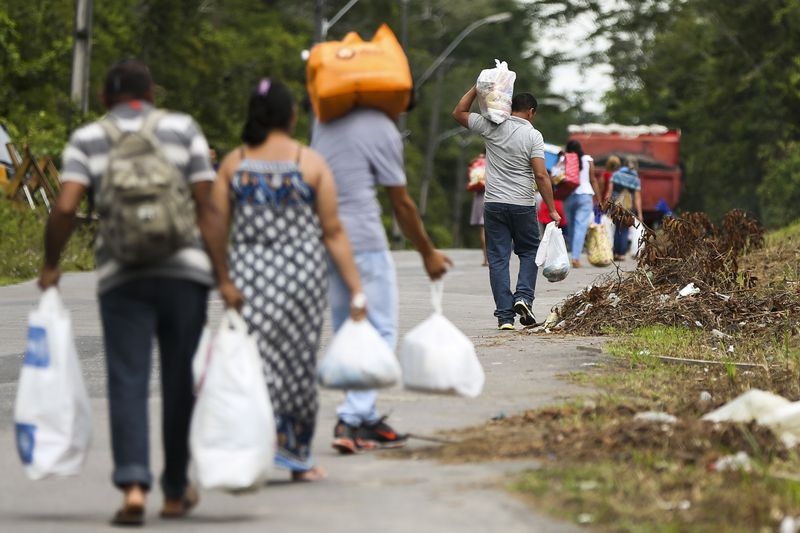
"This prevents allegations of torture, degrading conditions or violation of prisoners' rights, since a private lawyer is not going to lodge a complaint against his own employer. In addition, privately contracted lawyers are not interested in getting involved in policies of release from prison or in urging the private management of the prison to guarantee prisoners’ rights," stated the ombudsman. Catarina Pedroso says that this was exactly what she observed when she visited Compaj, in Manaus, in her capacity as expert from the National Mechanism for Preventing and Combating Torture (MNPCT).
Fernando Anunciação, president of the National Federation of Prison Service Employees (FENASPEN), adds that outsourcing of the penitentiary system can lead to corruption. "Where is the difference between the average cost of inmates in state prisons and those in outsourced prisons, where the cost is much higher? Employees are not well paid, and there is no investment in prisoners’ rehabilitation. Where does this difference in cost go to? It goes somewhere," he asks. FENASPEN is affiliated to the Confederation of Public Servants of Brazil (CSPB), which in turn is affiliated to Public Services International (PSI).
The Ministry of Finance for the Amazonas region, for example, states that there are signs of overpricing in the management of state prisons by Umanizzare. On January 4, the public auditor Ruy Marcelo Alencar de Mendonça requested that the State of Amazonas Audit Office terminate contracts between the company and the state government.
So what can be done about it?
The experts consulted, and even the government of Michel Temer, place emphasis on the need to significantly reduce the number of prisoners in Brazil as one of the most important measures to confront the chaos existing in the prison sector. "The scale of the Brazilian prison system is the main cause of tension and the violation of rights in the prisons, when they subject hundreds of thousands of people to excruciating and degrading conditions. The rise of prison gangs can only be seen as a consequence of this process," says Catarina Pedroso.
According to data from Infopen, out of over 600,000 people detained in Brazil in December 2014, 40% were on remand, i.e. they had not yet been tried. 28% of the total were accused of or convicted for drug trafficking, 25% for armed robbery, 13% for robbery without the use of weapons and 10% for murder. "The administration of prisons is mainly run at executive level, where the prison issue is treated with indifference. The judiciary, however, is impregnated with an ideology of extermination of the enemy and control of social classes perceived as ‘dangerous’, with distorted interpretations of the law in order to relegate to prison those cases in which the law recommends that measures alternative to imprisonment should be taken," points out the ombudsman Bruno Shimizu.
Scholars who have studied the penitentiary system also highlight the need to decriminalize drug use, as a way of contributing to the release of prisoners. "Drug prohibition has negative effects, as it results in imprisonment of drug users or small-scale traffickers, especially blacks and the poor," says Catarina Pedroso, who points out that 63% of women detainees are imprisoned for drug-trafficking.
On January 6 this year, the Minister of Justice, Alexandre de Moraes, who was recently nominated to the Supreme Court by President Michel Temer, presented the National Public Security Plan. With regard to the prison issue, the document proposes reducing the number of detainees, building more prisons, tightening the penalties for the most serious crimes and a greater focus on the war on drugs, among other measures. Pedroso considers that: "Although the National Public Security Plan, at one point, mentions seeking to reduce the prison population, this is not the effect that the other measures are certain to bring about."
Valuing prison staff
Fernando Anunciação, from FENASPEN, argues that confronting the crisis in the prisons necessarily implies valuing the profession of the prison staff. He states: "These professionals have to be public servants by career, with an adequate salary, and qualifications. We need to empower the prison staff, whose voice must be heard in the debate about the prison system. We are not even mentioned in the Constitution.”
On January 13, FENASPEN issued a statement criticizing the "palliative" measures taken by the federal government. This document states that the lack of recognition of prison officers "has contributed to exacerbating" the situation. It adds as follows: "The penitentiary system will only work when treated with due consideration and when the work carried out by prison staff is organized in conjunction with guarantees of education, discipline and the possibility of work for the inmates."
The expert from the National Mechanism for Preventing and Combating Torture places emphasis on the terrible working conditions to which these employees are subjected, "exposing them to physical and mental illness and a gruelling routine". She recalls that the Nelson Mandela Rules, a United Nations document on the treatment of prisoners, point out, among other things, that prison staff must work as civil servants, with job stability, and receive vocational training appropriate for the complexity of their work. She states: "Working conditions are a very important factor in determining or avoiding the use of torture. It is a well-known fact that when a person is subjected to degrading working conditions, there is a considerable chance of violence being replicated by employees against people deprived of their liberty."
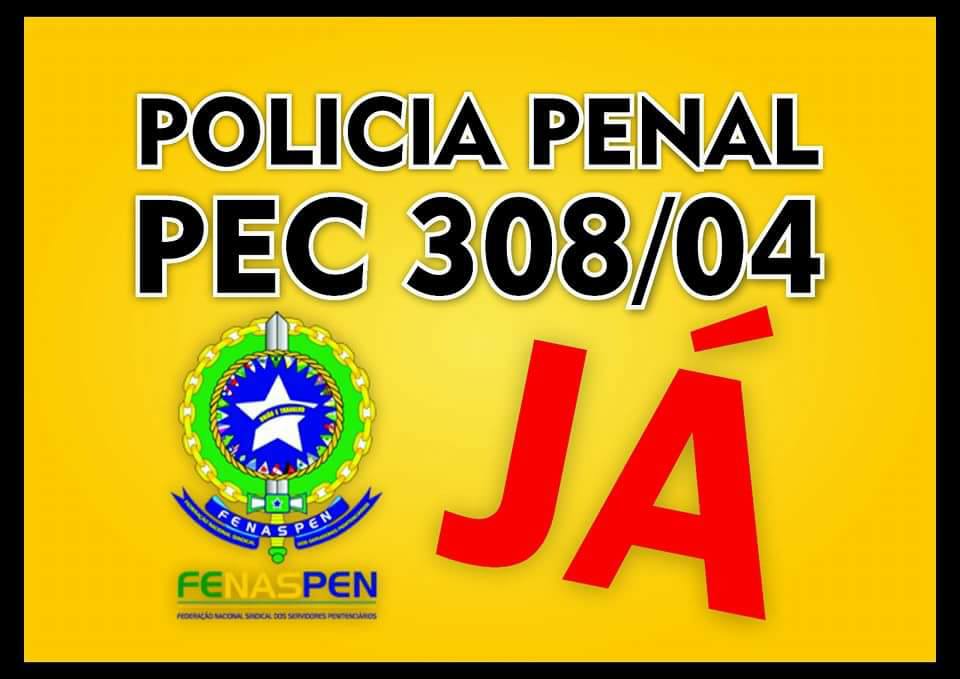
However, Paulo Malvezzi stresses that this appraisal does not go far enough if the staff have to work in a prison that has three times more prisoners than it is supposed to have. "When you reach the level of hyper-incarceration, all the skills of management, and all the ability to provide a minimum of dignity to the prisoners and the staff are lost."
One of the demands of prison staff is that the proposed Amendment 308 to the Constitution, which is being processed by the House of Representatives, be approved. This measure would create the Criminal Police Force, turning professionals working in prisons into police officers.
Catarina Pedroso, however, does not agree with this initiative: "The functions of the prison staff are radically different from those of the police, in the sense that they have to look after the prisoners, guaranteeing access to their rights. In Brazil, there is a history of state violence, and the police have clearly noticeable, militarized characteristics. In this sense, any measure that makes the prison environment even harsher would lead to more violations of people’s rights and would further endanger the lives of both prisoners and staff."
Up to the date of publication of this report, neither Umanizzare nor the State Secretariat for Penitentiary Administration in Amazonas (SEAP/AM) had answered the questions submitted to them.

